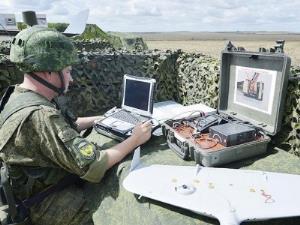



Date:01/08/19
 Russia has tested its high-speed military internet that can send encrypted data over long distances, the pro-Kremlin Izvestia newspaper reported Thursday.
Russia has tested its high-speed military internet that can send encrypted data over long distances, the pro-Kremlin Izvestia newspaper reported Thursday.
The secure military internet tests come three months before parts of a Russian law tightening state control over the internet come into effect. Lawmakers say “internet sovereignty” will protect the Russian-language segment of the internet in case it is disconnected from the World Wide Web, while critics argue that the law is vague and unenforceable.
opinion Why Russia Wants to Break the Internet Read more Encrypted signals, including large audio and video files, were sent across more than 2,000 kilometers over dedicated radio channels at a speed of 300 megabits per second, Izvestia cited Russia’s Defense Ministry as saying.
“Unlike the internet, these are completely closed-off channels,” said Viktor Murakhovsky, an expert at Russia’s Military Industrial Commission.
“The main advantage of military communication networks is that they’re completely autonomous and resistant to external influence. They can’t be accessed by third-party consumers even theoretically,” Murakhovsky said.
The tests reportedly involved more than 1,500 mobile communication and encryption packages, digital video conferencing systems and space communication stations. More than 4,500 Russian Central Military District troops deployed the equipment within an hour, Izvestia reported.
The news comes a month after Germany and the Netherlands signed a joint military internet deal to share defense communication networks.
Russia Tests Encrypted ‘Military Internet’
 Russia has tested its high-speed military internet that can send encrypted data over long distances, the pro-Kremlin Izvestia newspaper reported Thursday.
Russia has tested its high-speed military internet that can send encrypted data over long distances, the pro-Kremlin Izvestia newspaper reported Thursday.The secure military internet tests come three months before parts of a Russian law tightening state control over the internet come into effect. Lawmakers say “internet sovereignty” will protect the Russian-language segment of the internet in case it is disconnected from the World Wide Web, while critics argue that the law is vague and unenforceable.
opinion Why Russia Wants to Break the Internet Read more Encrypted signals, including large audio and video files, were sent across more than 2,000 kilometers over dedicated radio channels at a speed of 300 megabits per second, Izvestia cited Russia’s Defense Ministry as saying.
“Unlike the internet, these are completely closed-off channels,” said Viktor Murakhovsky, an expert at Russia’s Military Industrial Commission.
“The main advantage of military communication networks is that they’re completely autonomous and resistant to external influence. They can’t be accessed by third-party consumers even theoretically,” Murakhovsky said.
The tests reportedly involved more than 1,500 mobile communication and encryption packages, digital video conferencing systems and space communication stations. More than 4,500 Russian Central Military District troops deployed the equipment within an hour, Izvestia reported.
The news comes a month after Germany and the Netherlands signed a joint military internet deal to share defense communication networks.
Views: 521
©ictnews.az. All rights reserved.Similar news
- Azerbaijani project to monitor disease via mobile phones
- Innovative educational system to be improved under presidential decree
- NTRC prolongs license of two TV and radio organizations for 6 years
- Azerbaijan establishes e-registry for medicines
- Azerbaijani museum introduces e-guide
- Nar Mobile opens “Nar Dunyasi” sales and service center in Siyazan city
- International conference on custom electronic services held in Baku
- OIC secretary general to attend COMSTECH meeting in Baku
- Azerbaijan develops earthquake warning system
- New law to regulate transition to digital broadcasting in Azerbaijan
- Azerbaijani State Social Protection Fund introduces electronic digital signature
- Intellectual traffic management system in Baku to be commissioned in December
- Tax Ministry of Azerbaijan started receiving video-addresses
- World Bank recommends Azerbaijan to speed up e-service introduction in real estate
- Azerbaijan to shift to electronic registration of real estate





















